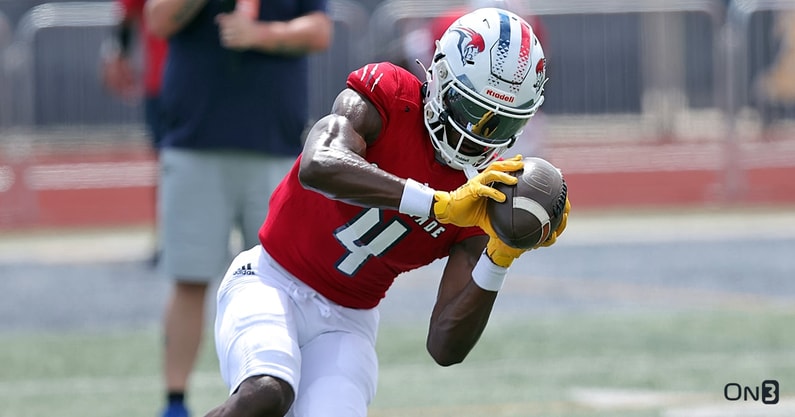Florida High School Athletic Association drafting NIL proposal for review

Florida is beginning to take steps to explore NIL at the high school level.
The Florida High School Athletic Association is in the process of drafting an NIL proposal for its board of directors to review, the association wrote in a statement to Palm Beach Post. The news comes hours after Georgia became the 34th local athletic association to allow high school athletes to participate in NIL activities without forfeiting their eligibility.
Sources have indicated to On3 in recent days that NIL could be allowed for high school athletes in the Sunshine State as early as January, around the first of the year. The governor’s office has also made it clear it could step in if need be.
The FHSAA has a board of directors meeting on Nov. 5-6 and is also scheduled to meet next February, April and June.
“The FHSAA is currently in the process of drafting a proposal that will be given to our board of directors for review at one of our upcoming meetings,” the FHSAA wrote in an email to the Palm Beach Post.
Florida has been one of the most progressive states when it comes to NIL at the collegiate level. When Florida enacted the Intercollegiate Athlete Compensation and Rights Act in 2020, it put pressure on the NCAA to allow athletes to monetize their NIL rights. In February, the state signed House Bill 7B into law, which allows coaches and athletic department staff to assist in the facilitation of NIL deals. However, a FHSAA spokesperson told On3 earlier this fall that there have been “minimal” discussions about an NIL policy among its committees in the last year.
In the southeast, Arkansas, Louisiana, Kentucky and Tennessee high school associations allow NIL activities in some fashion for its student-athletes. The North Carolina High School Athletic Association technically approved a new NIL policy in May, yet that change is tied up in a legal tug-of-war with the State Board of Education.
Other state associations in Alabama, Mississippi, South Carolina and Texas do not allow high school athletes to engage in NIL activities and still play high school sports.
Who could benefit from NIL changes in Florida?
Florida has historically produced some of the top talent to come out of the high school ranks. Florida, Florida State and Miami are three of the most storied programs in college football, thanks to the talent inside the state.
Top 10
- 1New
Johntay Cook
Sets visit, schools show interest
- 2Hot
Kryen Lacy agent
Calls out sheriff, NFL after death
- 3Trending
Rylan Griffen
Back to SEC?
- 4
Urban Meyer
Crushes state of NIL
- 5
FSU Shooter
Police identify shooter
Get the On3 Top 10 to your inbox every morning
By clicking "Subscribe to Newsletter", I agree to On3's Privacy Notice, Terms, and use of my personal information described therein.
In the 2024 recruiting class alone, Florida has four five-star recruits: wide receiver Jeremiah Smith, cornerback Ellis Robinson IV, defensive lineman David Stone, cornerback Charles Lester III and offensive tackle Jordan Seaton. While Robinson, Stone and Seaton all play for IMG Academy – a prep school – they still do not currently profit from NIL.
In the last five years, 145 athletes from the state have been picked in the NFL draft. Another 37 have been drafted in the NBA.
Florida allowing athletes to monetize their publicity rights would signify a major dominio in NIL across the high school landscape.
“While adding another state to the list of states that permit high school NIL has become more common in 2023, adding Georgia to this list is a momentous occasion considering most southern high school athletic associations have refused to amend their amateurism policies the last few years while many others have made such amendments,” Dan Greene, a NIL expert and associate attorney at Newman & Lickstein in Syracuse, N.Y., told On3 what Georiga’s move could mean for the high school landscape.
“NIL, like many industries, has proven to be a copycat industry where everyone wants to be able to keep up with their peers. Now that Georgia high school athletes can monetize their NIL, I wouldn’t be surprised if Florida and Alabama are next considering their proximity and competition on the gridiron. Perhaps these other associations will realize that the ‘Wild, Wild West’ aspect of NIL has either come and gone or is not as big as some others have made it out to be.”